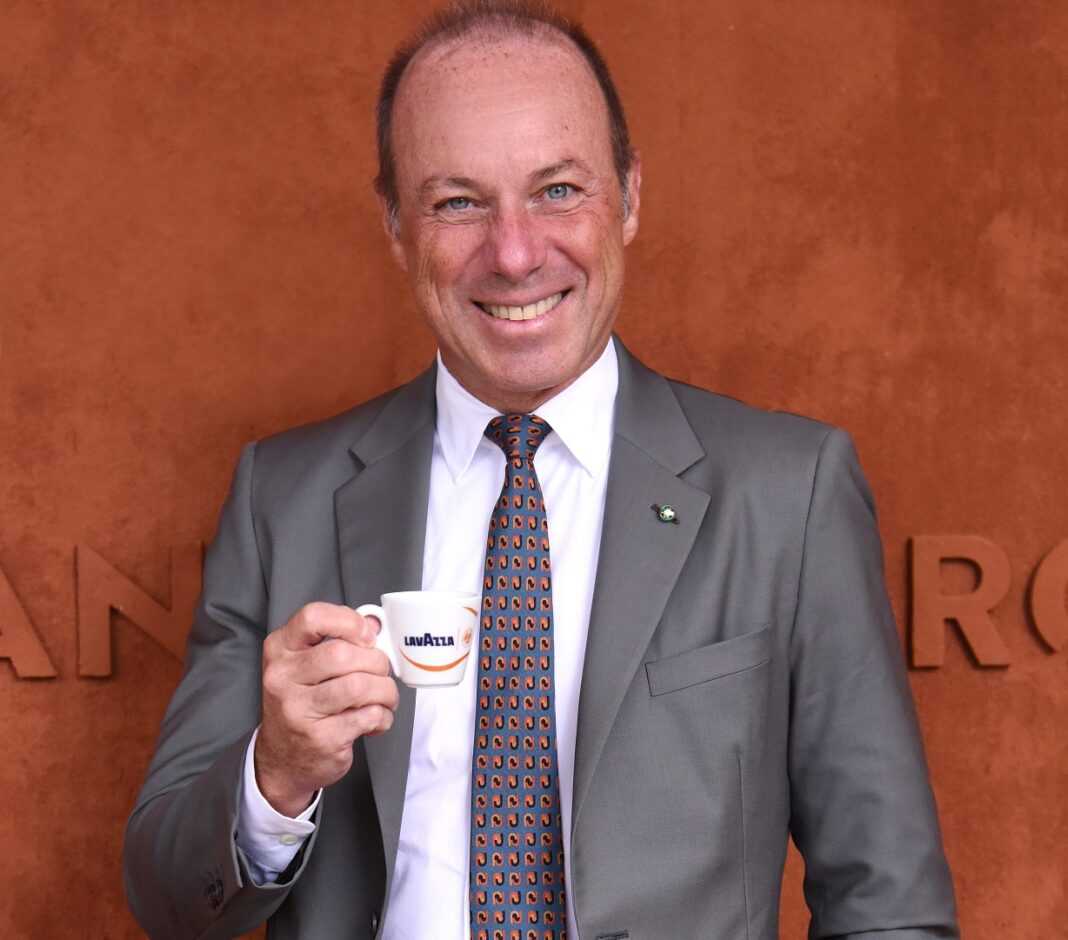Giuseppe Lavazza is the grandson of the founder of Lavazza, the company that has been brewing espresso for more than 120 years. Its name is stamped on countless coffee packages and is present in over 140 countries. The BBC interviewed him to learn more about his coffee routine and the values that drive the company. Below, we report part of the transcription from the episode podcast conducted by Leanna Byrne.
Giuseppe Lavazza: “It’s all about balance sometimes and not just the blend. Sometimes I love to have a cappuccino with some friends who come to visit me.”
He sometimes drinks an Americano after dinner. “I like it because it’s very gentle, and I stay at the table with my friends, talking about different things, mainly soccer. You know, in Italy, as in the UK, soccer is part of our lifestyle, just like coffee is.”
Giuseppe Lavazza speaks about the challenges and joys of running a family business that has been passed down through four generations. From its beginnings in Turin, Italy, to global expansion and navigating the hurdles of rising coffee prices and sustainability, this is a business fueled by tradition and innovation.
Lavazza even finds a connection to pop culture. Giuseppe Lavazza mentions Emily in Paris, the hit Netflix show that follows a young American marketing executive navigating life and love in the French capital. One of the marketing company’s clients in the show was an Italian coffee company with a familiar-sounding name, Bavazza.
Giuseppe Lavazza: “We had a little bit of an argument with the people producing the series.”
You might think this was a dream opportunity for publicity, but the lookalike fictional brand received mixed reviews on the show. Lavazza claims the company had discussed a sponsorship with the series, which ultimately didn’t go ahead.
Giuseppe Lavazza: “We had a nice, small response on our social media channels, where we joked about what they did with our brand in a very ironic way, as is the style of our company. Of course, we became more famous globally, but we were not pleased to be part of this joke. Still, it’s okay”
From Lavazza’s point of view, the company is continuing to grow, expanding into markets like India and China.
Giuseppe Lavazza: “We see that the new, interesting markets are growing quite a lot. I can mention China. Of course, we are talking about the future development of coffee, but many producing countries are also becoming consuming countries. Brazil is perhaps the most important one, but we also have Vietnam, Indonesia, and Colombia discovering more and more the pleasure of enjoying a good cup of coffee.”
Lavazza also sells its coffee beans, capsules, and machines worldwide through retailers, independent shops, vending machines, and offices. It has its own shops, such as its flagship store in London, but the only country where it’s planning to open more stores is China.
Giuseppe Lavazza: “We are working on an important joint venture with a big player in China specializing in retail. The company is Yum China. With them, we are planning to open about 1000 coffee shops by 2028.”
Lavazza has evolved significantly since it was founded in 1895. Previous generations focused primarily on the domestic Italian market, but the current generation is working to establish Lavazza as a global name.
Giuseppe Lavazza: “The responsibilities are different now because we’re talking about a group, not just a single brand, Lavazza. We now have a portfolio of different brands. The size of the company has grown significantly—from 1 billion euros in revenue in 2010 to over 3 billion today. After 30 years, 70% of our total turnover is generated by international activities, with only 30% coming from the domestic market. The Italian market is still very important, but we now also have big markets like France, Germany, the US, and the UK.”
Despite its growth, Lavazza remains a family affair. Ownership is shared between two branches of the Lavazza family.
Giuseppe Lavazza: “My family includes myself and my sister, Francesca. She is in the business as well and is a member of the board. Then, on the other side, there’s the other Lavazza family, which includes four people. My cousin, Alberto, represents the third generation in the business as honorary chairman. My other three cousins, Marco, Manuela, and Antonella, are also involved. Marco is vice chairman, and Antonella and Manuela are board members.”
The coffee industry currently faces challenges such as rising commodity prices, inflation, and supply chain disruptions.
Giuseppe Lavazza: “We are in the middle of a big storm—a perfect storm. The two main coffee varieties, Arabica and Robusta, have been hit by spikes in coffee prices over the last four years. It all started in 2021 with frost affecting Brazilian production, leading to a significant rise in Robusta prices. A year and a half later, Robusta was also impacted by climate change, with production dropping in Vietnam, one of the most important producers. Then, there were disruptions from international geopolitical events, like the Suez Canal crisis, which increased shipping costs and caused delays.” With all these disruptions, will coffee prices come down anytime soon?
Giuseppe Lavazza: “We are very close to record-high prices. I don’t see any chance of improvement before the second half of 2025, when we will know if the climate conditions and crops in Brazil and Vietnam are returning to normal.”
To listen to the full podcast click here.

















